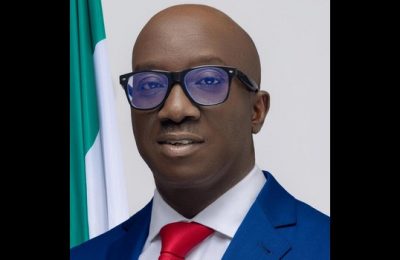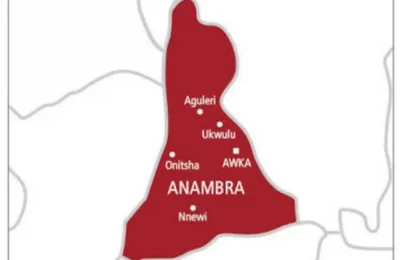
SOCIOLOGY, a discipline that deeply explores the intricacies of human society, has often been underestimated and undervalued in Nigeria. This was the recurring theme of the round table discussions at the 29th annual conference of the Nigerian Anthropological and Sociological Practitioners Association (NASA). The event, hosted by Olabisi Onabanjo University (OOU), brought together leading sociologists from across the country to discuss the state of the field and chart a new path forward. The consensus, however, was clear: Sociology, once a vibrant and influential field, is now facing a crisis of relevance. In fact, the event echoed the spirit of the 1995 NASA conference and reiterated the pressing social and political issues confronting the nation. As Professor Obatunde Bright Adetola, Chair of the Local Organising Committee, noted in his welcome address, the 1995 NASA conference, themed “Nigeria at the Crossroads: Which Way Out?”, presciently anticipated the challenges that would plague the nation in the decades to come. Twenty-nine years later, Nigeria finds itself at another crossroads, grappling with similar issues of governance, social order, and development.
There is no gainsaying the fact that Sociology, with its focus on the study of human society and social relationships, is uniquely positioned to address the complex challenges facing Nigeria. However, the round table discussions ignited a much-needed conversation about the state of the discipline in the country and one of the significant concerns raised is the growing disconnect between Sociology and the real world. It is such that, the participants bemoaned the fact that sociological research often remains confined to academic journals, failing to translate into tangible policy changes or societal improvements. Some also argued that sociologists need to step out of their ivory towers and engage more actively with policymakers, NGOs, and community organizations at large.

In like manner, the roundtable participants emphasized the importance of innovation and adaptation. They called for the development of new methodologies that are better suited to the challenges of the 21st century. Conventional research methods, while valuable, may no longer be sufficient to capture the complexities of contemporary society. Sociologists must therefore embrace interdisciplinary approaches, incorporating insights from fields like psychology, economics, and political science. The discipline must further decolonize itself by developing original African-centered theories and methodologies as this will enable sociologists to better understand the unique social and cultural dynamics of the African continent.
To be sure, Sociologists have a crucial role to play in shaping public discourse and influencing policy decisions. To achieve this, they must however become more proactive in promoting their work. By publishing op-eds, giving public lectures, and engaging with the media, sociologists can raise awareness of pressing social issues and offer evidence-based solutions. There is also an urgent need to be more vocal and visible in the public sphere, sharing expertise with the public, to help build a more informed and engaged citizenry. Additionally, sociologists must cultivate stronger relationships with their alumni as they can provide valuable support, both financial and intellectual, to Sociology departments. Despite the challenges facing Sociology and its teaching and practice in Nigeria as highlighted, the future is not bleak. The discipline has a lot to offer in addressing the myriad of social challenges facing Nigeria, from poverty and inequality to ethnic tensions and religious conflict. However, there is an urgent need to bridge the gap between theory and practice, ensuring that research informs policy and social change. By analyzing social structures, cultural norms, and power dynamics, sociologists can provide valuable insights into the root causes of social problems. Also, by addressing the issues of outdated methodologies, inadequate funding, and societal stigma, sociologists can revitalize their discipline and make a significant contribution to society. To achieve this, sociologists must be willing to embrace change and innovation much as they must be committed to public engagement and advocacy.
In her presidential address, Professor Hauwa’u Evelyn Yusuf, President of NASA, also outlined several initiatives to revitalize the association and the discipline. These include increased membership fees to ensure the sustainability of NASA and its activities; hybrid conference formats that would enhance accessibility and participation. She also highlighted the issue of international collaborations to broaden the association’s reach and impact, a reward system for active members to incentivize membership and participation, and lastly the procession of NASA Fellows to recognize and honor distinguished members of the association. In sum, the 29th annual conference of the Nigerian Anthropological and Sociological Practitioners Association (NASA) was a call to action for Nigerian sociologists. By addressing the pressing issues of the day, the conference participants demonstrated the relevance and importance of their discipline. As Professor Obatunde Bright Adetola, who was one of those conferred with the prestigious award of the Fellowship of Nigerian Anthropological and Sociological Practitioners Association NASA on the occasion of the 29th Annual Conference of NASA emphasised, “Sociologists must be at the forefront of efforts to build a just, equitable, and prosperous Nigeria.”
We want to believe that despite the challenges facing the discipline, there is hope for the future. Based on the enthusiasm and frank nature of the discussion at the Conference and Roundtable, by addressing the issues of outdated methodologies, inadequate funding, and societal stigma, and thus, charting a new course, sociologists can revitalise their discipline and make a significant contribution to society. To achieve this, however, sociologists must be committed to public engagement and advocacy, and through collaboration, sociologists can ensure that their discipline remains relevant and impactful in the years to come.
- Ms. Yakubu is an academic researcher and writer with focus on media and gender studies.
READ ALSO: The sociology of Nigerian hushpuppism







